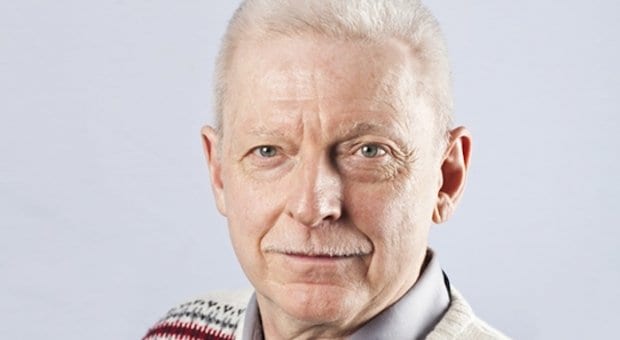We really should have seen this coming.
The birth of Xtra in 1984 neatly punctuated an important transition in the history of our communities.
The forces that had exploded onto Toronto’s streets in 1981, in the wake of the legendary bathhouse raids, changed course, flowing as much into the courts as onto the pavement.
For three decades, the reassuring rhythm of Xtra’s biweekly publication matched the steady tempo of battles fought and mostly won.
But our history tells us — and Xtra has often reminded us — that the steady advance of our movement is not inevitable, that there is no assurance of an endless summer. Our struggle has been born more than once, has grown, made progress and changed minds . . . only to be brutally crushed and extirpated, first from society and then from memory. But, unlike that unlucky gay movement in Germany a century ago, we have the opportunity to learn from history and take steps to avoid repeating it.
On the 30th birthday of Xtra, after 30 years of progress, that awareness of our history authorizes us to formulate uncomfortable questions about the political weather: Is the temperature dropping? Is winter coming?
True, the gay movement displays an astonishing vitality and now touches every inhabited continent of our world. At the same time, it shows signs of flagging in its North American birthplace. In the United States, the movement seems to be permanently mired, reduced to begging for scraps like marriage. And often not winning even those.
Here in Toronto, a city that has been a beacon of hope for our people around the world, the animosity of city council toward Pride, simmering for years just beneath the surface, is symptomatic. What other city festival has to jump through as many hoops as Pride to retain its funding every year? What other festival has its participants scrutinized by a camera-wielding city councillor looking for evidence with which to discredit it?
Why are a dozen or so naked men in our parade an intolerable offence in a city that chuckles at the Naked Bike Ride, an event that sends hundreds of naked people on a tour of much of the downtown core every year?
How was a howlingly unsuitable candidate able to storm into the office of mayor, shouldering aside a seasoned candidate who happened to be gay?
How have we come to have a mayor who builds political capital by shunning us like a colony of lepers?
Most soberingly, what does it mean that we have a chief magistrate who is also the mentor of a man charged with participating in the brutal killing of a young gay man he didn’t even know?
Toronto’s chattering classes seem to regard Rob Ford as an abomination, yes, but an aberration; once he’s gone, they let us believe, our political system will recover its equilibrium and banality will reassume its traditional place as ballast.
I fear that this is a comforting delusion.
I fear that Ford is a prototype, a trial buffoon, a demagogic monster assembled behind the scenes by a committee of political Dr Frankensteins.
I fear that they will learn from their mistakes and we will see Ford 2.0. Maybe not this year — the making of monsters takes time. But when he or she appears, Ford 2.0 will be armed with the same neo-conservative agenda and will be looking to reignite the same destructive passions that carried the original into office. But this time the surgeons’ seams will be tucked neatly out of sight and the ugly bolts discreetly concealed. Ford 2.0 will be much more acceptable at dinner parties.
I fear that the political left does not recognize that the rules have changed, that genteel, take-the-high-road campaigns, faced with hate-fuelled divisive politics, will meet with annihilation. I fear that the left will fail to see that Ford’s constituency is an angry but clueless mob, there for the taking by either the left or the right.
And I fear that Ford Nation is not going away.
With their demagogue gone, there will be no cult of personality to obscure the political alchemy that has conjured his followers into a congealed ball of carefully nurtured rage.
And we ought to know by now that one element of that alchemy is homophobia.
We ought to understand enough Fordnationese by now to know that, when their leaders target “downtown latte-sipping, bike-hugging elitists,” they mean us. Others as well, but certainly us.
Years ago, I saw a disturbing painting by a local gay artist. It showed a grim ghostly figure circulating unnoticed in a Pride Day crowd on Church Street; the revellers were joyful, unaware of the danger lurking unseen in their midst. It was a reference to the early days of AIDS, to HIV striding among us, an unrecognized serial killer. The painting was titled While We Weren’t Looking.
Today, it takes on another meaning. Ford Nation may be stalking us. We can’t afford not to look.
So, as Xtra enters its fourth decade, we gaze upon a changing and perhaps challenging terrain. Our communities could be facing the end of 30 years of progress.
I’m looking at Ford and looking at a possible future. That future does not look friendly.
But it is just one possibility; if we start looking, the future can still be ours to make.
Ken Popert is the president and executive director of Pink Triangle Press.

 Why you can trust Xtra
Why you can trust Xtra


